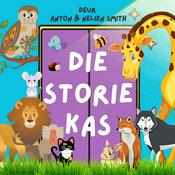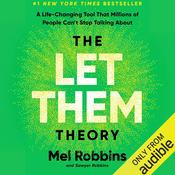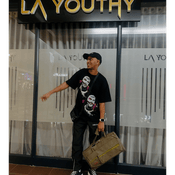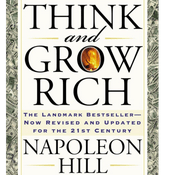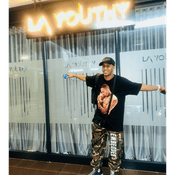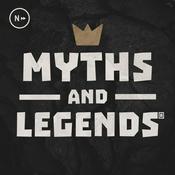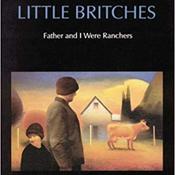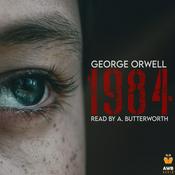474 episodes
- Join award-winning comedian Rose Matafeo for a screening and conversation with John Oliver on her hilarious new Max Original comedy special, Rose Matafeo: On and On and On.
Rose Matafeo's stand-up special crackles with insightful, self-deprecating wit as she gets candid on life in her 30s — dating culture, supporting friends through breakups, the stark differences between herself and her parents at the same age, how aging has impacted her comedy, and more. In a candid conversation, hear about the making of the special — how she took a 16,000-word note on her phone and turned it into comic gold, how her act has changed since she broke out in her 20s, stories from her life in comedy, and more. - Moderator Annette Insdorf will interview Ethan Hawke about his new film, Blue Moon.
The prolific actor, writer, director and musician offers a tour-de-force performance as the acerbic lyricist Lorenz Hart, whose songs include "My Funny Valentine," "The Lady Is a Tramp," and "Blue Moon." In addition to Hawke's Oscar-nominated performance opposite Denzel Washington in Training Day (2001), he is perhaps best known for indie collaborations with Richard Linklater on Boyhood (2014), Waking Life (2001), and the BEFORE trilogy (1995, 2004, 2013) – which he scripted with the director and co-star Julie Delpy. Among his other memorable films are First Reformed (2017), Born to Be Blue (2015), Good Kill (2014), Before the Devil Knows You're Dead (2007), Hamlet (2000), Gattaca (1997), and Dead Poets Society (1989). He has also directed both fiction and documentary, such as Wildcat (2023), The Last Movie Stars (2022), Blaze (2018), and Seymour: An Introduction (2006).
From a brilliant screenplay by Robert Kaplow, Linklater elicits Hawke's greatest performance yet — incarnating the self-destructive Hart on the very night that his collaborator Richard Rodgers (Andrew Scott) has just opened Oklahoma! on Broadway with new partner Oscar Hammerstein II. Co-starring Bobby Cannavale and Margaret Qualley, Blue Moon is a revelation of Hawke's maturation as an artist. LORNE: The Man Who Invented Saturday Night Live with Susan Morrison and Bob Odenkirk
2026/1/23 | 58 mins.As Saturday Night Live marks its 50th anniversary, celebrate the genius behind one of television's most enduring cultural institutions — Lorne Michaels. In her definitive biography, Lorne: The Man Who Invented Saturday Night Life, Susan Morrison — articles editor at The New Yorker — gains unprecedented access to Michaels himself, along with SNL's iconic cast and writers, offering a rare, behind-the-scenes look at the man who reshaped American comedy.
With razor-sharp insight and hundreds of interviews, Morrison reveals the warts-and-all portrait of Michaels: a visionary tastemaker, a shrewd businessman, a relentless perfectionist, and the enigmatic force behind SNL's star-making machine. From Will Ferrell to Tina Fey, John Mulaney to Chris Rock, the legends who defined the show open up about the comedy god who made it all possible.
Joining Morrison is comedian, writer, and SNL alum Bob Odenkirk, who once called Michaels "some kind of very distant, strange comedy god." Together, they'll dive into the obsessive brilliance of a man whose influence reaches far beyond late-night TV — and discuss the star-studded 50th-anniversary special that reminded the world why Saturday Night Live still matters.
Expect stories, revelations, and plenty of laughs in this unmissable conversation about the genius who forever changed the face of comedy.- Kate Winslet never stops.
From classic roles in films like Titanic to her indelible work on television in shows like Mare of Eastown, her acting is versatile as it is magnetic. Lee is the most recent chapter in an iconic career. Based on a true story, and following a pivotal decade in the life of American war correspondent and photographer Lee Miller (Winslet), Lee is a fascinating portrait the woman who captured some of the 20th century's most indelible images of war — including an iconic photo of Miller herself, posing defiantly in Hitler's private bathtub — in a full-throttle pursuit of truth for which she paid a huge personal price.
Following the screening, in a live taping of Horowitz's Happy Sad Confused podcast, hear Winslet on her fascinating career and the making of the film — capturing Lee Miller's haunting story, how she prepares for her roles, stories from the set, and more. I Am You: Sarah Jessica Parker with novelist Victoria Redel and editor Adam Moss
2026/1/09 | 1h 7 mins.Join acclaimed novelist and poet Victoria Redel with Sarah Jessica Parker and editor Adam Moss for a conversation about Redel's absorbing new novel, I Am You, published by Parker's literary imprint, SJP Lit.
In this gorgeously crafted historical fiction set in 17th-century Holland, Redel excavates the long-overlooked story of one of the few female Dutch Masters painters, Maria van Oosterwijck, and the complex relationship she developed with her maidservant-turned-apprentice, Gerta Pieters. Following these two women as they navigate the ranks of an elite, male-dominated art world, Redel weaves a story that Sarah Jessica Parker calls "spellbinding… and impossible to forget" — a queer romance for the ages, an ode to artistic creation, and an unforgettable love story set against the heady, sensuous backdrop of the Dutch Golden Age. Praised by novelist Michael Cunningham as "a stunning accomplishment . . . a story of ferocious insights into the human psyche and the drive to create art," hailed by author Benjamin Moser as "an unforgettable picture of the erotic, entangled, tragic nature of art itself," and lauded by novelist Melissa Febos as "a profound achievement," I Am You proves how art reshapes conversations on sexual politics, class, women's rights, and how we tell and retell our histories.
In celebration of its launch, hear Redel, Parker, and Moss discuss the novel — how Redel wrote a new kind of queer love story and tale of art history, what made Parker know that she had to share it with the world, and more.
More Arts podcasts
Trending Arts podcasts
About 92NY Talks
The 92nd Street Y, New York has harnessed the power of arts and ideas to enrich, enlighten and change lives, and the power of community to repair the world for 150 years. This podcast features many of the fascinating people and conversations from our stage.
Podcast websiteListen to 92NY Talks, Middagvervolgverhaal and many other podcasts from around the world with the radio.net app

Get the free radio.net app
- Stations and podcasts to bookmark
- Stream via Wi-Fi or Bluetooth
- Supports Carplay & Android Auto
- Many other app features
Get the free radio.net app
- Stations and podcasts to bookmark
- Stream via Wi-Fi or Bluetooth
- Supports Carplay & Android Auto
- Many other app features


92NY Talks
Scan code,
download the app,
start listening.
download the app,
start listening.



